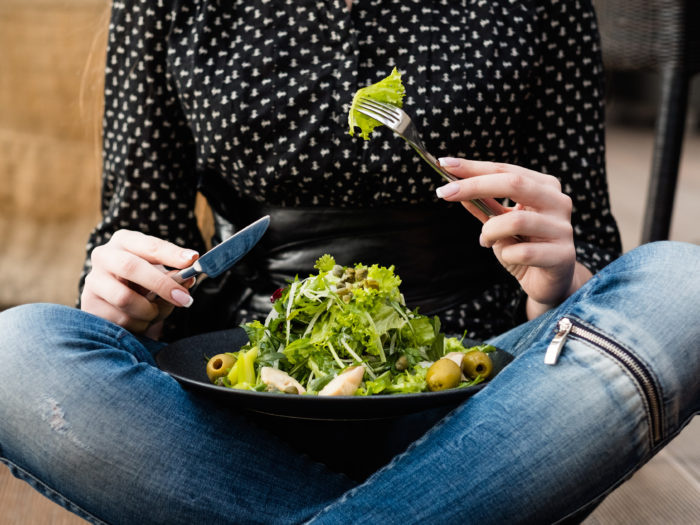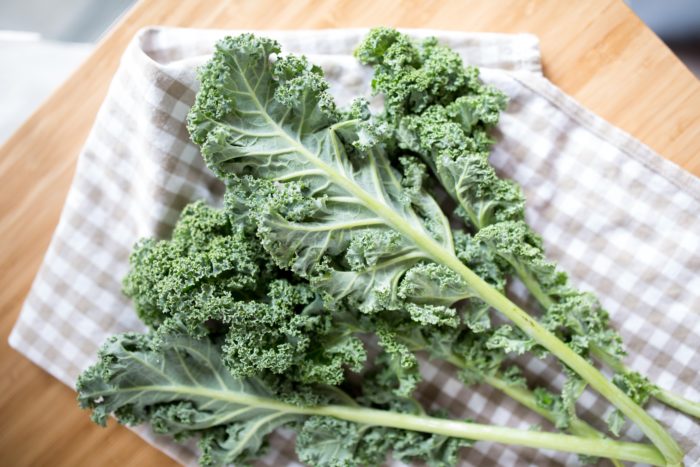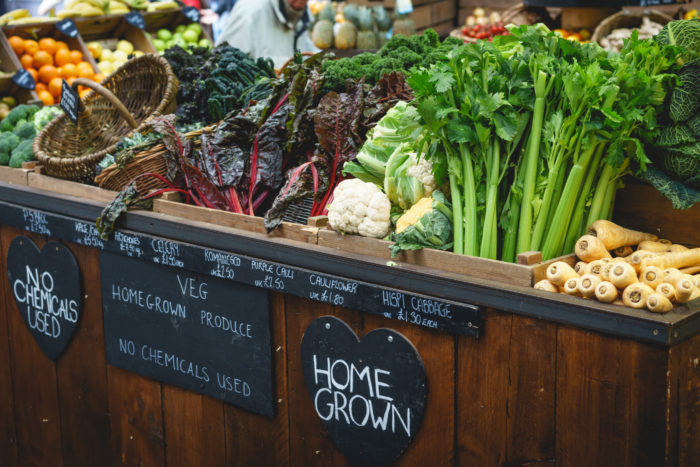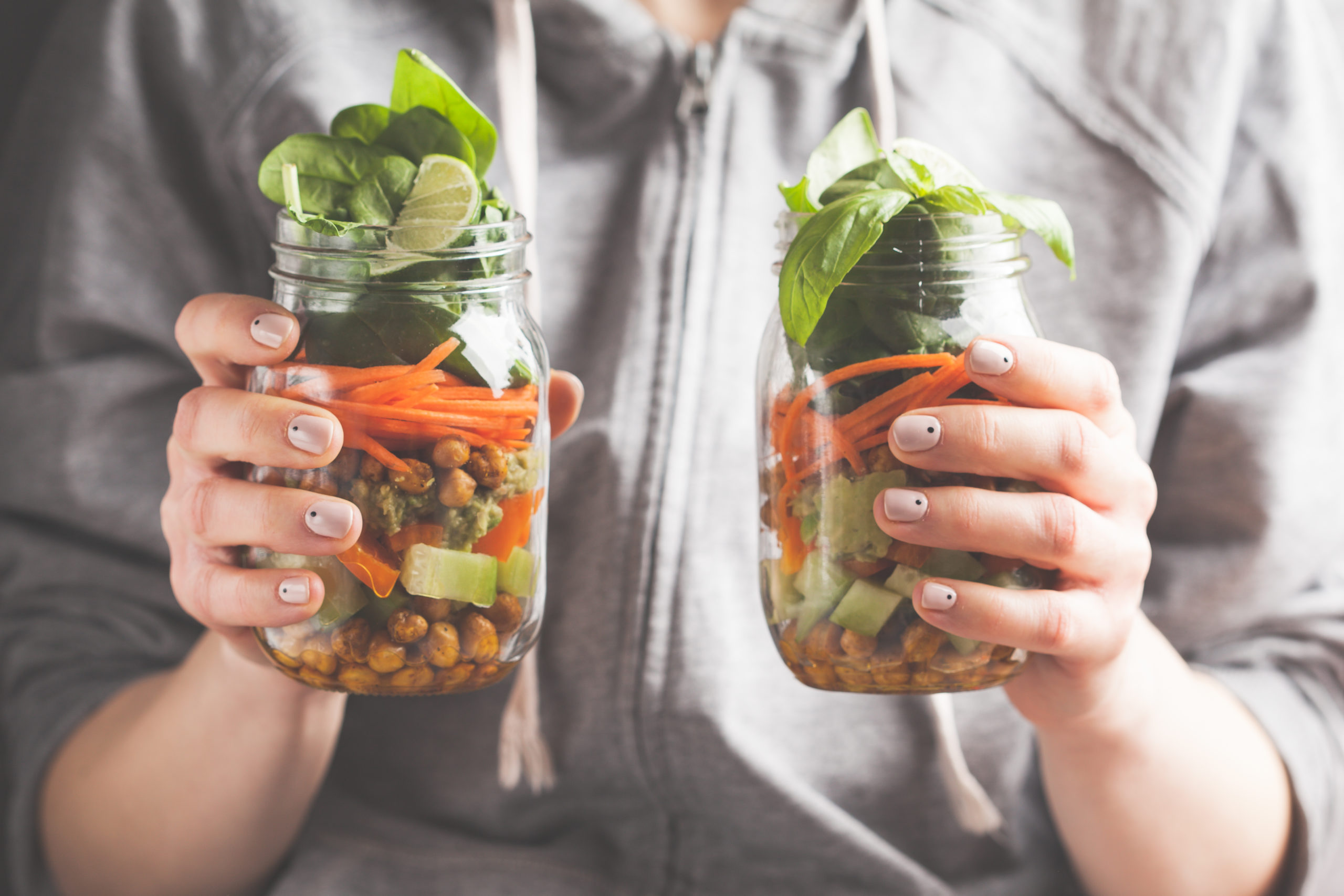A Note for Our Readers
I no longer offer 1:1 nutrition or functional health services, and I’m not accepting new clients for digestive or hormone-related support. This blog remains published as a helpful resource for women navigating these health challenges — especially those looking for clarity around their symptoms and well-being.
Today, my work is dedicated to helping Health Coaches, Practitioners, and Wellness Entrepreneurs grow profitable, sustainable businesses through private practice coaching and mentorship.
If you’re a wellness professional who’s ready to grow a thriving, values-aligned business without burning out, click here to learn more about my coaching programs.
And if you’re ready to build the kind of online health business that nourishes you financially, emotionally, and energetically, check out my signature program, the Nourished Business Accelerator™.
Thank you for being here and I wish you the best on your journey.
You’ve probably heard that eating more vegetables is always better.
And it’s true; vegetables are some of the most nutrient dense foods you could eat. We all know edible plants should be a staple in nearly any health-promoting diet (except “carnivore” diets, but I digress.)
But did you know that eating too many vegetables could actually be at the root of many of your unexplained gut symptoms?
Whether you’re trying to lose weight, heal your gut, or just eat more real food, we’ve been bombarded by health rules and diet culture that tells us to fill our plates with vegetables or we’ll never reach our goals.
But loading up on vegetables can be at the root of many common gut symptoms that health-conscious women experience.
And overdoing it on vegetables can be doing more harm to your gut than eating a few processed foods on occasion would be.
I want to help you break free from the diet mentality and health dogma that tells you more vegetables is always better. To find freedom from a mindset that says you have to eat pounds of vegetables every day or you’re doing “healthy eating” wrong.
In this blog post you’ll learn:
- Why overdoing it on vegetables can cause gut issues
- Some common gut symptoms that occur with overconsumption of vegetables
- How to successfully make the switch to eating the right amount of veggies for your body, without gut symptoms
- Why I teach my clients intuitive eating over strict diet rules
Are you ready to learn about how eating too many vegetables can actually be behind your gut symptoms?
Keep reading to learn why eating too many vegetables could be causing your gut symptoms. Plus, I’ll teach you how you can eat veggies without disturbing your gut.

Why We Overeat Vegetables
Overconsumption of vegetables is one of the most common diet practices I see in my clients and women in my free Facebook community.
Often times switching to a real-food diet means ditching the processed bread, pasta, and crackers. And usually, either carbs or fats are constantly demonized by various diet trends. Even healthy whole foods like fruit, meat, and eggs are frequently villainized by the health blogosphere.
Really the only “safe” food left is vegetables. So it makes sense that health-conscious women would load their plates up with the only food they feel safe around.
This level of food-avoidance is also true when it comes to the recommendations for supporting gut health. If we’re having gut symptoms, we’re told to avoid processed foods and sugars at all costs. So meat and vegetables are really the only thing we have left to fill our plates with.
Now, don’t get me wrong. Vegetables should be a staple in your health-promoting diet. I don’t want this conversation to provoke anxiety around eating veggies!
But I’ve seen far too many women who are buying into health culture’s rules that more vegetables mean more health.
We’ll so often go out of our way to eat a huge salad instead of the burger and fries we really want. All because we’ve been told that being healthy means eating multiple servings of vegetables at every meal.
Listen, I’m all for having health goals that include eating more vegetables and supporting a healthy gut. But we should work to reach these goals from a perspective of self-care, not from fear of not being “healthy enough.”
So, If you’re ready to bust some stereotypes around vegetable consumption and learn how you can eat vegetables in a way that will nourish your gut, not cause more symptoms, keep reading!

How Vegetables Can Cause Gut Symptoms
Part of the reason why vegetables are so good for us is that they contain large amounts of fiber.
Fiber is the indigestible part of plant foods that helps keep our guts running smoothly.
Fiber also acts as food for our beneficial gut bacteria. These gut bacteria work with our bodies to improve not only the health of our gut, but the health of our immune system, mental state, and more!
However, if your gut is already irritated and inflamed, you have a bacterial imbalance/infection, or if you’re predisposed to certain gut conditions, large amounts of these fibrous vegetables could actually be causing gut symptoms.
There are two different types of fibers, soluble and insoluble fiber. And both of these fibers can benefit the gut, and contribute to gut symptoms in different ways.

Soluble Fiber
Vegetables like broccoli, carrots, squash, beets, taro, yuca, or turnips contain mainly the soluble form of fiber.
This is the form of fiber that acts as food for your gut bacteria. Consuming adequate amounts of soluble fiber can help to maintain a healthy bacterial ecosystem in your intestines.
But if you have a bacterial imbalance or pathogenic overgrowth in your gut, consuming soluble fiber may be what is causing your gut symptoms.
If you have a gut imbalance, overconsumption of soluble fiber containing vegetables can cause symptoms like gas, bloating, indigestion, and a change in bowel habits.
FODMAPs are one group of soluble fiber containing foods. These are the most common forms of soluble fiber to cause digestive issues.
Our gut bacteria readily consume foods that are high in FODMAPs. When your gut bacteria are imbalanced or you have a pathogenic overgrowth, these foods can cause gut symptoms.
You can visit Monash University’s FODMAP site to learn more about FODMAP containing foods and whether or not they may be causing your digestive symptoms.

Insoluble Fiber
Vegetables like spinach, kale, peas, or okra predominantly contain fiber in its insoluble form.
This form of fiber is what helps to provide bulk to your stool and pulls water into the large intestine. It helps to create easier, more regular bowel movements.
Consuming insoluble fiber is beneficial, not only for gut health but also for maintaining healthy hormones.
However, insoluble fiber passes through the digestive tract mostly intact. And if your intestines are already inflamed, these fibers can further irritate your digestive tract.
Overconsumption of insoluble fiber-containing vegetables can cause symptoms like cramping, gas, bloating, food intolerances, and a change in bowel habits.

Common Gut Symptoms from Eating Too Many Vegetables
The high fiber content of vegetables is what can cause gut symptoms in some people, especially if they’re eating too many.
Some common symptoms of gut distress from eating too many vegetables are:
- boating
- gas
- abdominal pain
- change in bowel habits
The bloating, abdominal pain and gas associated with excessive fiber consumption are a result of the gases released by the bacterial breakdown of these fibers.
These symptoms are common in gut conditions, so it’s not always clear that vegetables are to blame.
The only way to know if your gut symptoms are a result of eating too many vegetables is to reduce your intake and see if your symptoms subside. If not, it’s a good idea to work with a trusted medical practitioner to do some gut testing and get to the root of your gut symptoms.
Nutrient Deficiencies from eating Too Many Vegetables
Along with gut disturbances, the overconsumption of vegetables may also result in nutrient deficiencies.
This may seem counterintuitive since vegetables are some of the best real-food sources of vitamins and minerals.
But the fiber in vegetables, specifically the insoluble fiber, acts as a binding agent in your gut.
Consuming too much fiber at one time can reduce your body’s ability to absorb key vitamins and nutrients from food. Studies show that fiber can bind to essential minerals like calcium, iron, magnesium, and zinc.
If you think an excess vegetable intake is behind your deficiencies, try reducing your vegetable intake to around one to two half-cup servings at each meal.

How To Eat Vegetables Without Gut Symptoms
Just because you’re experiencing gut symptoms doesn’t mean you have to ditch all veggies.
There are many ways you can consume vegetables while still being kind to your gut and keeping those pesky gut symptoms at bay.
Keep reading for a few of my tips for eating vegetables without experiencing gut symptoms.
Slowly Increase Your Vegetable Intake
The sudden switch from a Standard American type diet to one full of real foods and vegetables can be difficult on your gut. This rapid increase in vegetable consumption is often behind the increase in gut symptoms.
So if you’ve recently increased your vegetable consumption and are experiencing gut issues, know that you’re not alone. I recommend decreasing your intake and ramping up slowly instead.
Try starting with no more than a half cup serving of vegetables at a meal. This slower integration of vegetables into your diet allows your gut and your gut bacteria time to adjust to the increased digestive demand.
Would you like to save this post?
Your email address is 100% safe and will never be sent spam.

Pay Attention to What Vegetables Cause Symptoms
Certain vegetables may cause you digestive upset, while other vegetables give you no symptoms at all.
Be mindful to pay attention to the symptoms you’re experiencing. This can help you easily adjust your vegetable intake to eliminate those that are causing issues.
For example, if you’re more prone to constipation you can choose to focus on insoluble fiber containing vegetables. Or, if you tend to have diarrhea, vegetables that contain higher quantities of soluble fiber will be your best bet.
If you notice that vegetables high in FODMAPs seem to be causing your symptoms, you might have IBS or an underlying gut infection. Reducing your intake of FODMAP containing veggies will help your symptoms. Getting tested for gut infections will get you on the path to resolving any underlying issues.
And if you do have a gut infection, working with a practitioner to get it treated can mean eating those vegetables again with no symptoms!
For some people, large quantities of starchy vegetables can cause gut issues. If that sounds like you, you may have a starch intolerance.
Learning to listen to our bodies and its subtle cues can be a valuable tool. And often times those cues come in the form of gut disturbances. If this is the case, we can adjust our vegetable intake or dive deeper into root causes to address your symptoms.
Cook Your Vegetables Instead of Eating Them Raw
Thoroughly cooking your veggies can greatly decrease your gut symptoms that may be associated with the overconsumption of vegetables.
Raw vegetables are notoriously difficult to digest. Cooking helps to break down some of the indigestible fibers in vegetables that can cause gut symptoms.
Essentially when you’re eating cooked veggies, you’re getting all of the nutrition of their raw counterparts (some vegetables even increase in nutrition when cooked) without subjecting your gut to the difficult to break down raw fibers.
Switching out some of your raw vegetables for fermented varieties, like sauerkraut or kimchi, can also aid in digestion.
The fermentation process actually “pre-digests” the vegetables and makes eating them easier on your gut.
Fermented foods also contain large quantities of beneficial bacteria that can also aid in digestion.

Drink Plenty of Water
If you’re consuming a lot of vegetables, you run a greater risk of becoming dehydrated. Dehydration can also be a cause of common gut symptoms like constipation and abdominal pain.
The soluble fiber in vegetables absorbs water. And when you’re consuming large quantities of vegetables, your hydration needs will increase.
Making sure you’re getting enough water while moderating your vegetable intake, should help prevent any digestive symptoms associated with dehydration.
My rule of thumb for appropriate water intake is to drink half your body weight in ounces. And of course, your water needs will increase with any amount of exercise or perspiration.
Choosing to eat vegetables with high water content, like cucumber, celery, and spinach can also help you counteract the dehydrating effects of eating lots of veggies.
Eat Fewer Vegetables!
Friend, I’m giving you permission to eat fewer vegetables.
If you’re experiencing gut issues, especially after eating vegetables, there is no reason to keep eating them at your current pace.
There’s NO shame in eating a meal, or two or three, that’s completely devoid of vegetables. Or one where the only vegetable comes in the form of tomatoes in your pizza sauce.
You can still be healthy while eating a diet that isn’t dominated by mega salads and plates full of cruciferous veggies.
If you’re eating a lot of vegetables, and especially if you’re also experiencing gut symptoms, I want to challenge you to discover your reason for your large vegetable consumption.
You might be eating this quantity of vegetables simply because you enjoy them. If that’s the case then altering the types of veggies and how you’re preparing them is a good next step.
But maybe you’re eating so many vegetables because you think it’s the “healthy thing to do.” Or maybe because that’s what your friend did to lose the last five pounds.
If so you’re likely eating these foods for the wrong reasons.
I challenge you to take a step back. Look at your health goals and vegetable consumption from a perspective of self-care.
Try viewing your food as a vehicle to care for your body more.
And in that, you might find your current level of vegetable consumption isn’t what your body needs right now.
I know that this can be a difficult mindset shift to make. So I’d love to team up with you to help you take the first steps. You can sign up for a strategy session with me, or to join the waitlist for my Fed and Fearless program. Both are ways that I can work with you to help you become fearless in your pursuit of health!

Don’t Completely Ditch the Veggies
Like I said before, vegetables are an integral part of any health-promoting diet. It’s the overconsumption of vegetables that can often tip the scale from health-promotion to contributing to gut symptoms.
Besides being an excellent source of fiber, vegetables provide a wide variety of micronutrients and phytochemicals that you just can’t get anywhere else.
Here is a list of a few key nutrients found in vegetables:
- Carotenoids: potent antioxidants that reduce the risk of disease, especially certain cancers and eye disorders. Vegetables high in carotenoids are carrots, sweet potatoes, and squash.
- Dithiolethiones: a class of powerful cancer-preventative compounds. Cruciferous vegetables like broccoli, brussels sprouts, cauliflower, and kale contain large amounts of these compounds.
- Polyphenols: chemical compounds that provide antioxidant properties and help prevent cell damage from free radicals. Brightly colored vegetables like red onions, olives, spinach, and artichokes pack the most polyphenol content per serving.
- Flavonoids: chemical compounds that have been shown to reduce inflammation and have antibacterial properties. Vegetables high in flavonoids include peppers, tomatoes, celery, and broccoli.
- Calcium: an essential mineral that not only forms bone but aids in muscle contraction and neurotransmitter release. And calcium found in vegetables like leafy greens, butternut squash, and rhubarb has actually be shown to be more readily absorbed by our bodies than the calcium found in dairy.
Vegetable consumption is essential for good health. But more vegetables isn’t always better.
Getting a variety of vegetables in your diet is far more important than eating upwards of eight to ten servings a day or more than some health experts recommend.
Eating different veggies (and even the same kind of different colors!) will help you get the widest range of beneficial nutrients. This variety can keep you from experiencing the digestive upset that comes with the overconsumption of these foods.

My Vegetable Recommendation
I recommend eating around three to five half-cup servings of vegetables every day.
That can equate to around one or two servings at every meal. Or if veggies for breakfast just isn’t your thing, adding a few more to your plate at dinner works too.
For me, this usually looks like few-to-none with breakfast, and about equal portions of cooked or raw veggies at both lunch and dinner. (You can see some examples of my food intake on Instagram!)
This quantity of vegetables spread out through my day keeps my gut and hormones happy. It also gives me all the fiber and micronutrients that I need from adequate vegetable consumption.
My plates probably don’t look like the quintessential health guru’s. They’re not loaded with 32 different vegetables, and I don’t eat salads the size of my torso at every meal.
But this amount of vegetable consumption is what I’ve found works best for MY body. I know that vegetables are part of my healthy diet. And I also know that too many vegetables can cause gut symptoms.
Having the perfect plate doesn’t mean that it fits what some diet plan says you should eat. It means that it serves your body best.
Your perfect plate doesn’t cause you gut symptoms after eating, or force you to eat something you don’t really want to.
For many people, moderating their vegetable intake is going to be far more health-promoting than eating more.

Eating Intuitively = Food Freedom
If you haven’t guessed already, I’m not a fan of diet culture or dogma telling you how to properly fuel your body. You aren’t doing healthy eating wrong if you don’t eat a pile of vegetables at every meal.
This kind of mentality is what keeps us living in fear of failure. Or in fear of never being good enough for whatever diet you’ve subscribed to.
And trust me, I’ve been there too. It’s an easy mindset to fall into. But I promise that ditching those food rules will bring you so much freedom and fulfillment, both around food and your own self-worth.
Instead of following one diet’s “rules” for eating, I encourage you to trust your intuition when it comes to fueling and nourishing your body.
It’s your body, after all. No one else should be able to tell you the right way to eat.
Yes, we look to different diets as templates and guidelines to show us what healthy eating can look like. But we don’t need to blindly follow all of their teachings, especially if it results in negative health outcomes.
You have the freedom to eat without fear of diet dogma telling you how much of a certain food is considered “healthy.”
All that matters is that you’re eating with the goal of fueling and nourishing your body properly. Part of that goal is to listen to your body when it’s telling you a certain food may not be serving you well at that time.
Eating Vegetables Free from Gut Symptoms
If you find that the quantity and type of vegetables that you’re eating just isn’t serving you right now, you don’t need to continue to eat that way.
Reducing your intake, or eating different types of vegetables can go a long way in reducing your gut symptoms.
And if you’re still experiencing gut disturbances, I’d love to team up with you to help you get your gut health back on track!
There may be an underlying gut imbalance or food intolerance that is keeping your gut from feeling its best. Working with a qualified medical practitioner is your best bet when it comes to healing your gut and getting back to living your healthiest life.
Now tell me – did you ever experience health benefits from cutting back on vegetables? Let me know in the comments below!
This post may contain affiliate links. If you click on a link and make a purchase, I may receive a small commission.

+ show Comments
- Hide Comments
add a comment